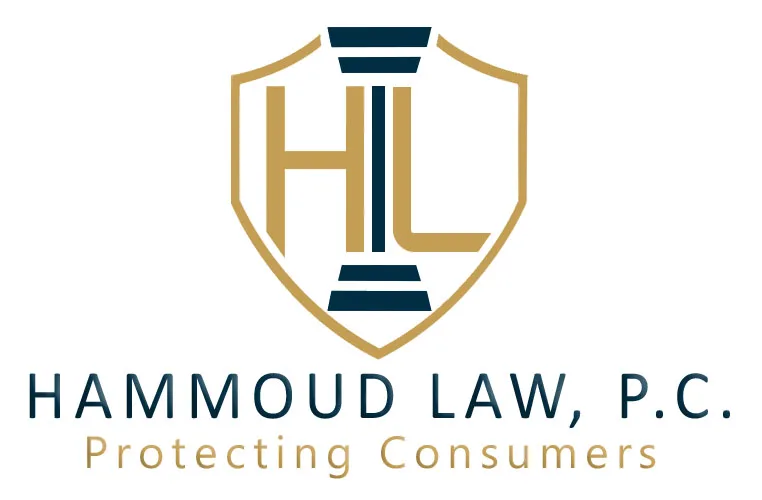Identity Theft
Recovering stolen money and correcting any additional damage caused by identity theft, such as a damaged credit score or a tarnished  reputation, can be a difficult task to undertake on your own. As identity theft becomes more common, determining the identity of the thief has become a challenge for police, often leaving victims without legal recourse against the thieves themselves.
reputation, can be a difficult task to undertake on your own. As identity theft becomes more common, determining the identity of the thief has become a challenge for police, often leaving victims without legal recourse against the thieves themselves.
Let Youssef review the details of your case, which will include both information collected by our experts and your own accounts, to determine whether a third party can be held liable for your injury. If your case is successful, you may be able to recover compensation for your financial losses, restore your reputation, and reestablish your credit score.
Are you a victim of identity theft?
Are there accounts appearing on your credit report that you did not open?
Are there charges appearing on your credit report that do not belong to you?
Did you file a police report?
Learn More About Identity Theft
Protecting Yourself from Identity Theft
by Youssef Hammoud, P.C. | July 2, 2022 Identity theft is a devastating and alarmingly common problem. A 2003 survey by the Federal Trade Commission revealed that 12.7% of respondents had been a victim of identity theft in the past five years. Affected individuals...
Identity theft is a devastating and alarmingly common problem. Affected individuals reported that criminals had falsely opened accounts under their names, taken over their existing credit accounts, or stolen credit card information to initiate fraudulent transactions. These crimes can result in hundreds of hours of wasted time attempting to correct an individual’s finances, thousands of dollars of debt being falsely attributed to victims, as well as long-lasting damage to their ability to obtain credit.
Following high-profile data breaches at some of the largest credit reporting agencies (CRAs) in the country—like the 2017 Equifax data breach that resulted in the publication of personal information on an estimated 148 million Americans—it is more important than ever to be aware of what identity theft looks like and how to fight it. Whenever you see bills for items you don’t remember buying, receive calls and correspondence for accounts you didn’t open, or receive denial or approval letters for loan applications you don’t recall making, you may be a victim of identity theft. If you see these signs, it’s time to take action.
An important preventative measure is to regularly review your credit reports for suspicious activity. Under the federal Fair Credit Reporting Act (FCRA), you are entitled to receive a free credit report from each CRA—Equifax, Experian, and Trans Union—once every year (at the moment you can get a free report once a week until December 31, 2023). You may order your report by visiting AnnualCreditReport.com or calling 1-877-322-8228. When you review your reports, you’ll want to pay special attention to your account tradelines and the inquiries section. Any information you don’t recognize should raise a red flag.
If you believe you are a victim of identity theft, you shouldn’t wait to action. Contact authorities as soon as you can. You’ll want to file identity theft reports with your local police department as well as the Federal Trade Commission (FTC) at IdentityTheft.gov. You want to be as detailed as possible and include each and every account, charge and/or inquiry that you believe is not yours and fraudulently made.
The identity theft reports you file with law enforcement and the FTC will support your claim that you suffered from identity theft in the event that you have to dispute any fraudulent information on your credit report.
Next, you should inform the credit reporting agencies about the identity theft and any fraudulent information on your reports as soon as you can. You should put together a dispute letter explaining that you are the victim of identity theft and include as much information nas you can, and also attach the police report and identity theft from the FTC with your dispute. You should also include proof of your identity. When the credit reporting agencies receive your dispute, they are required by the FCRA to block the disputed information from appearing on your report while they investigate your claims. Make sure to mail this packet by certified mail and request a return receipt, so you can be sure the CRAs received it.
The website and physical addresses for disputes for each CRAs are listed here:
Mailing Address:
Equifax Information Services LLC
P.O. Box 740256
Atlanta, GA 30348
Mailing Address:
Experian
P.O. Box 4500
Allen, TX 75013
Mailing Address:
TransUnion LLC
Consumer Dispute Center
P.O. Box 2000
Chester, PA 19016
The credit reporting agencies are required by law to conduct a reasonable reinvestigation, and if they fail to delete the fraudulent information, you may have a potential claim against them.
If you are a victim of fraud or identity theft and you have been impacted, you should speak to an experienced credit reporting attorney about your next steps. Schedule Your Free Consultation!
Start Your Free Consultation Here!

Mailing Address
3744 E. Chapman Ave., #F12269, Orange, CA 92859
Telephone
T: (949) 301-9692
Fax
F: (949) 301-9693
Email
info@lawhammoud.com

